The Charlotte skyline isn't the only thing rising-your property expenses just spiked, and it's time to talk rent.
Tenants love your place in NoDa, but so does your accountant, who's wondering why your cash flow hasn't kept up with the market. Charlotte's growth isn't slowing, and neither are your maintenance costs, taxes, or HOA fees.
You don't want to price tenants out, but you're not running a charity either. With a smart, data-driven approach, you can raise rent in sync with Queen City's evolving rental market.
Let's go through how to calculate rental increases in Charlotte.
Rent Adjustment Guide: Factors Influencing Rental Increases
Pay close attention to local market trends. Tracking what similar properties are charging on the Charlotte rental market gives you a benchmark and helps you avoid overpricing or undercharging. Market alignment keeps your units competitive and occupied.
Inflation plays a direct role. As the cost of goods, services, and maintenance rises, so should your rental prices. Adjusting rent accordingly protects your income's real value and keeps pace with your operational expenses. A property manager can help you figure things out if you're lost.
Property improvements also deserve a spotlight. If you've:
- Renovated the kitchen
- Upgraded appliances
- Improved curb appeal
Those enhancements can command higher rent. Upgrades increase the perceived and actual value of the property, which renters often respond to positively.
Lastly, profitability needs consistent attention. Review your property's financials regularly to assess whether your returns align with your goals. If profits are lagging behind expectations despite strong demand, it may be time to raise rates.
Calculating the Increase
To accurately calculate a rental increase, take a hard look at your own costs. Factor in:
- Property taxes
- Maintenance costs
- Insurance
- General operational expenses
If your costs have increased, it may be necessary to adjust rent just to maintain your margins.
From there, determine the actual percentage increase. Many landlords use inflation rates or local market averages as a benchmark. Whether it's 2%, 5%, or more, the number should reflect both your financial goals and what the market will tolerate without risking turnover.
Communication is critical. Let your tenants know about any upcoming changes clearly and respectfully. Explain why the increase is happening, whether it's tied to:
- Rising expenses
- Improvements to the property
- Market shifts
A transparent approach helps maintain trust and can reduce friction when changes go into effect.
Rental Adjustment Guide: Property Management Tips
Implementing a systematic rental adjustment guide strengthens your property management strategy by creating consistency and clarity for both landlords and tenants. Establish clear policies outlining when and how rental increases will be implemented. This removes ambiguity and helps tenants understand what to expect during lease renewals.
Another effective approach is to offer incentives to tenants who choose to renew their leases. Small gestures like the following can go a long way in encouraging long-term tenancy and reducing turnover costs:
- A fresh coat of paint
- New appliances,
- Flexible payment arrangements
Rental Increases: Now You Know
There's a lot that goes into Charlotte rental increases. With this guide, you shouldn't have a future issue.
Don't leave money on the table or tenants in the dark. Let our local experts at PMI Mecklenburg show you exactly how to calculate strategic rental increases that keep your properties competitive and compliant.
Contact us to get started.


